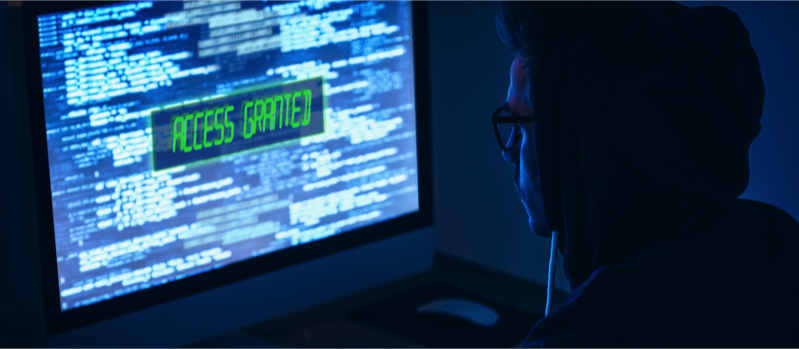
24 Feb WHAT TO DO IF YOU’VE BEEN “HACKED”

Dr. Sherry McCoy PhD
is a freelance writer & actor for the Stop Senior Scams Acting Program (SSSAP) in Los Angeles. Follow SSSAP on Facebook . For more info re: SSSAP, contact Adrienne Omansky at SSSAP4U@gmail.com. Questions for the writer should be directed to “Dear Sherry” at Not Born Yesterday! P.O. Box 722, Brea, CA 92822 or nbynews@juno.com.
WHAT TO DO IF YOU’VE BEEN “HACKED”
Dr. Sherry McCoy, PhD – Stop Senior Scams ℠ Acting Program
Welcome to March of 2022! This month we move into Daylight Savings Time on the 13th, celebrate St. Patrick’s Day on the 17th, and welcome Spring on the 20th! While we’re busy changing our clocks, drinking a bit of Irish Coffee, and breaking out the spring wardrobe, we might as well do a little “spring cleaning” too. Specifically, let’s take this opportunity to tighten up our internet security and protect our email and social media accounts from scammers. As we move deeper into the digital age where the vast majority of business and personal correspondence takes place online, hacking has become big business for scammers. Note — If scammers can hack into your email account, they can a) have access to all of your correspondence with your friends, family, financial institutions, etc.; b) install malware on your computer and slowly siphon off important personal information; and c) send out “fake” emails that appear to be from you to everyone in your email address book, falsely claiming, e.g., that you or a loved one are in dire need of financial help for one reason or another. If several of your friends respond to the bogus emails and send money to help – the scammers now not only have some money from your friends, but they in all likelihood have also gained access to your friends’ important personal ID info as well.
DOMINO EFFECT
In short, hacking can lead to a domino effect where the financial wellbeing of many people is put into jeopardy. Recently, a similar scenario to the example discussed above happened to someone in the Stop Senior Scams Acting Program. Hence, we all quickly learned just how devastating the fallout from hacking can be. In order to protect ourselves from scammers and hackers, it’s important for all of us to keep a close watch on our online identity. Below are some tips from the Federal Trade Commission to help us do just that. (https://www.consumer.ftc.gov/articles/how-recover-your-hacked-email-or-social-media-account)
RED FLAGS THAT YOUR EMAIL OR SOCIAL MEDIA ACCUNT HAS BEEN HACKED
You notice your social media account has posts you did not make.
You are not able to login to your email or social media accounts.
The “Sent” Folder of your email account has messages in it that you did not send, OR it has been emptied.
Friends / Family report they are receiving emails from you that you did not send. Sometimes these fake emails come with links or pleas for help or money.
STEPS TO RECOVER A HACKED EMAIL OR SOCIAL MEDIA ACCOUNT
Update your security software; Run a scan; Delete any malware found on your computer, phone, tablet; and Restart your device. Use the security software which came with your computer, phone, or tablet – OR – download security software from a well-known, reputable security company.
Change Passwords – a) If you are able to login to your email or social media account, change your passwords immediately. Make sure the passwords are strong. b) If you are unable to login to your email or social media account to change your passwords, follow the guidelines available from your email service provider or social media network to regain access to your accounts. If your account has been taken over by scammers, you may need to fill out forms proving it is really you who is trying to regain access to your account.
Setup Multi-Factor Authentication for access to your accounts – This usually means establishing a password, AND adding a code from an authenticator app, in order to verify that it is really you (not an imposter).
“TO DO” LIST WHEN LOGGED BACK INTO YOUR RESTORED ACCOUNT
FOR RESTORED EMAIL ACCOUNTS
Go to “Settings”
Check your signature block to make sure there are no unfamiliar links that have been added.
Check to see if there are any “rules” set up to forward emails automatically to someone else’s email address.
Delete any “rules” you did not setup.
Look in your “SENT,” “TRASH” and “DELETED” Folders for any tracks the hacker may have left behind, i.e., emails the hacker sent from your account, or viewed and then deleted.
Review Your Inbox — Take stock of what types of emails the scammer may have viewed in your account.
Note: Scammers look for usernames and passwords to important financial institutions.
Change usernames and passwords for any accounts that may be at risk (e.g., bank account, credit cards, etc.).
FOR RESTORED SOCIAL MEDIA ACCOUNTS
Check your social media account to make sure there are no new “friends” added to your account that you did not invite.
Also, look for messages the hacker may have sent from your account.
REPORT any misused personal info that scammers obtained from your email or social media accounts to the FTC’s secure website at https://www.identitytheft.gov/#/. They will help you create a personal recovery plan for identity theft.
TELL YOUR FRIENDS you were hacked – and your account has now been restored. Tell them not to click on any links or respond to any emails they may have received from you asking for money or help during the time your email account was compromised. Let everyone in your email address book know about this via email or text. If you send a group email, list the names of everyone in your address book in the “Bcc” line to keep confidentiality.
HOW TO PROTECT YOUR ACCOUNTS FROM GETTING HACKED
USE STRONG PASSWORDS — One of the best defenses you have against hackers is to have strong passwords. See the FTC’s “password checklist” for guidance at https://www.consumer.ftc.gov/articles/password-checklist
USE MULTI-FACTOR AUTHENTICATION – This usually means establishing a password, AND adding a code from an authenticator app, in order to verify that it is really you (not an imposter). Using multi-factor authentication protects your account even if your password is stolen.
PROTECT YOUR INFORMATION – Never give out your username or password when responding to an unsolicited email. For example, if you receive an email from someone claiming to be from your bank, don’t click on any links or respond via that email. Instead, contact your bank directly to address the situation.
INSTALL AND UPDATE SECURITY SOFTWARE AND USE A FIREWALL – Set your operating system, internet browser, and security software for automatic updates.
SECURITY SOFTWARE — Get security software directly from a reputable security company. Avoid sites that offer a variety of software applications for “free,” as they are more likely to include malware.
USE CAUTION WHEN USING PUBLIC COMPUTERS OR A FRIEND’S DEVICE – Don’t treat a public computer as if it were your own. For example, avoid logging into your personal accounts when using public computers as Wi-Fi is usually not secure. Never allow a public computer to save your passwords.
WHERE TO REPORT SCAMS
Federal Trade Commission at 877-382-4357 or online at https://www.ftccomplaintassistant.gov/#crnt&panel1-1.
For questions about Medicare fraud / abuse, contact Senior Medicare Patrol (SMP*) at 1-855-613-7080.
U.S. Senate Special Committee on Aging’s Fraud Hotline at 1-855-303-9470.
SAVE THE DATE!
In celebration of National Senior Fraud Awareness Day, SSSAP will host a free virtual library program with Exposition Park – Dr. Mary McLeon Bethune Regional Library on Wednesday, May 11th at 3pm. More detailed info to follow next month. SSSAP continues virtual programs, and we are now booking in-person programs for 2022. Please contact Adrienne Omansky at SSSAP4U@gmail.com for more info, or if your organization would like to host our program.
STOP SENIOR SCAMS℠ ACTING PROGRAM on YOUTUBE
Please go to the SSSAP YouTube Channel https://www.youtube.com/channel/UCjFjb-WPPr8KAXq1dlu1EvA to see our new videos. If you subscribe (free of charge), you will be notified when new videos are released. Together we can Stop Senior Scams! Here are links to two of our most recent videos: “The Top Senior Scams with SSSAP” https://www.youtube.com/watch?v=cp097g7hTUg, and “Robocalls, Mail Fraud and Merlin with SSSAP” https://www.youtube.com/watch?v=dA3noym9JPo&t=186s.
Remember – You may be a target, but you don’t have to be a victim!
Dr. Sherry McCoy, PhD is a freelance writer & actor for the Stop Senior Scams ℠ Acting Program (SSSAP) in Los Angeles. Follow SSSAP on Facebook at https://www.facebook.com/SSSAP2016/?fref=ts. For more info re: SSSAP, contact Adrienne Omansky at SSSAP4U@gmail.com. Questions for the writer should be directed to “Dear Sherry” at Not Born Yesterday! P.O. Box 722, Brea, CA 92822 or nbynews@juno.com.




Sorry, the comment form is closed at this time.